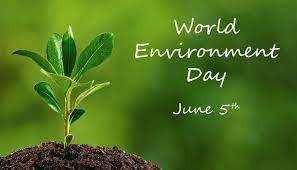World Environmental Day: Environmentalist advocates legislation to regulate use of plastic
Mr Babatunde Qodri, Environmental and Climate Change campaigner, has called for legislation to regulate the use of plastic trash by outlawing it or reducing the quantity produced.
Qodri made the appeal in an interview with the News Agency of Nigeria (NAN) on Wednesday in Ilorin, in commemoration of the 2023 World Environment Day.
He said that regulating the use of plastic had become imperative in view of new laws and other incentives which were needed to encourage or mandate the closure of the plastic waste loopholes.
Qodri, a coordinator for the climate change leadership training in Kwara, said plastic pollution s a plague that is now threatening the planet.
”A nation like Nigeria has struggled with waste management over the years and is also one of the most vulnerable to plastic garbage in Africa.
”The plastic is mostly left lying around on the road and in every street corner rather than being saved in trash cans and later recycled.
”And this disastrous attitude is attributable to ignorance and lack of regulation to deal with the threat, as a result, our earth and its components are seriously threatened.
”According to data, Nigeria produces over 2.5 million tonnes of plastic garbage annually; regrettably, more than 88 per cent of this waste ends up in landfills, water bodies and streets, which in the long run harm aquatic animals in the water,” the environmentalist said.
Qodri however noted that plastic waste, if managed effectively, could result in economic gain and could serve different purposes when recycled.
”Purposes such as lowering the need for new plastic production or using plastics to make use of significant environmental benefits which would therefore encourage the creation of jobs, landfill use and energy conservation.
”If properly addressed, and in a timely manner, this would have a long-term impact on the future of our world.
”Small efforts could have significant influence, and by working together, we can make real headway against the problem.
“We don’t need single-use plastic; instead, we need to reconsider how we buy, sell and shop in order to promote the circular economy,” he said.
. as UNFPA calls for end to plastic pollution
The UN Population Fund (UNFPA) has called for an end to environmental plastic pollution.
The information is in a statement issued to the News Agency of Nigeria (NAN) on Wednesday in Abuja by Hajiya Kori Habib, the Media Associate of UNFPA in Nigeria.
Habib stated that the call was made by Mr Ib Petersen, the Deputy Executive Director of the Fund, in commemoration of the 2023 World Environment Day (WED), annually marked on June 7 and has “Beat Plastic Pollution” as 2023 theme.
The celebration of the day is a reminder that people’s actions on plastic pollution matters.
The UNFPA media associate quoted Petersen as saying “plastic wastes are gradually taking over the global environment,
making it a threat to existence, with its attendant pollution.”
He, therefore, advocated for cut in plastic waste or recycling of wastes to save the environment.
He added that “based on the preliminary results of the GHG Inventory 2022, only 13 per cent of UNFPA offices
reported recycling plastic.
“Unfortunately, some of our locations do not have the local infrastructure to allow recycling- or even safe waste disposal.
“This is why it is important to cut plastic waste from the source.”
The deputy executive director also said that every year, over 400 million tonnes of plastic is being produced, with only
a small fraction recycled, adding that “as a result, plastic waste accumulates in landfills, oceans and waterways.”
He, however, expressed the determination of UNFPA to reduce the environmental impact of its humanitarian supply chain
to reduce plastic waste.
He said a recent study estimated that UNFPA’s humanitarian supply chain produces an annual waste of 86,650 tonnes
of plastic packaging, which are most likely not properly disposed, but could be avoided.
The deputy executive director reiterated the importance of reducing plastic pollution to achieve coordination, cooperation and capacity building.

























